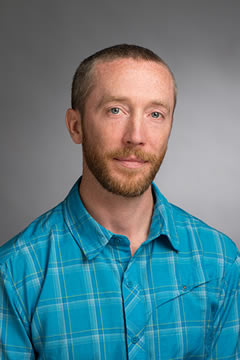
Edge Prize 2016: Kristoffer Whitney
Whitney K (2014) Domesticating nature? Surveillance and conservation of migratory shorebirds in the ‘Atlantic Flyway’. Studies in History and Philosophy of Biological and Biomedical Sciences 45: 78–87.

When evaluating the papers, the committee was looking for papers that combined empirical data with a clear theoretical framework in order to challenge or extend existing work in STS in some way and offer insights that went beyond the boundaries of its own case. Despite the high quality of the nominated papers, the committee were unanimous in their selection of Kristoffer Whitney’s paper as the overall winner.
At one level, Whitney’s paper is a history of the ways in which migratory birds have been monitored and protected – domesticated even – by a series of environmental regulations and institutions. Describing the interaction between naturalists, scientists and policy-makers, Whitney’s analysis shows how migratory birds have been conceptualised in different ways, and hence protected for different reasons, as environmental concerns and knowledge have developed over time. Of particular interest is the shift from seeing migratory birds as economically valuable ‘agents of biological pest control’ that support agricultural production to distinguishing between particular species and seeing those labelled as ‘endangered’ as valuable in their own right.
Documenting this transition in regulatory logic would be reason enough for publication but Whitney goes beyond this to consider the implications of the ways in which these developments are talked about within STS for the field itself. In particular, Whitney challenges us to think about the use of Foucauldian metaphors of panoptican science in this context. Whilst superficially appealing, in the sense that they capture something of the increased, and increasingly individuated, surveillance that modern technology makes possible, do such metaphors conceal more than they reveal? Whitney fears they do and argues for a more ontological approach to STS that emphasises the different realities that can be imagined through these new forms of data collection, including the realities experienced by animals themselves. The pay-off of this – and relevance for STS more widely – is the argument that our accounts are also interventions and that the choices we make about how to theorise our data have implications for what those we study ‘were, are and can be’.
Edge Prize Committee members: Robert Evans and Park Doing
Acceptance Statement: Kristoffer Whitney
I am humbled and pleased to receive the 4S David Edge Prize this year, and would like to thank the prize committee for this honor. The colleagues and friends who influenced this article are far too numerous to name individually, but I would like to sincerely thank the conference attendees, readers, scholars, and mentors who had a hand in the development of the manuscript. The kernel of this article began in graduate school at the University of Pennsylvania, and grew into conference talks at Yale University and the Science Museum in London. Colleagues at the University of Wisconsin-Madison, particularly in the Institute for Research in the Humanities, were instrumental in seeing this kernel to fruition. I would also like to thank the editors and reviewers at Studies in History and Philosophy of Biological and Biomedical Sciences for their enthusiasm and feedback. In addition, I gratefully acknowledge the work and commitment of the scientists who study the endangered species at the heart of this article. Last but not least, I would like to thank these non-human actors themselves for helping to provide the science and the stories, without which the world would be a duller place for us humans. The individuals and institutions that helped shepherd this article from inception to completion are testament to the fact that STS is a large, vibrant, and multidisciplinary community. I look forward to the continued intellectual stimulation, camaraderie, and support that engagement in this community provides.
Bio
Kristoffer Whitney is an Assistant Professor in the Science, Technology & Society Department at the Rochester Institute of Technology. He completed a Postdoctoral Fellowship at the Holtz Center for Science and Technology Studies at the University of Wisconsin-Madison and holds a PhD in the History and Sociology of Science from the University of Pennsylvania. His work has focused on the intersections between endangered species science and policy, and he is currently researching the sociotechnical aspects of marketing-based approaches to environmental conservation.
